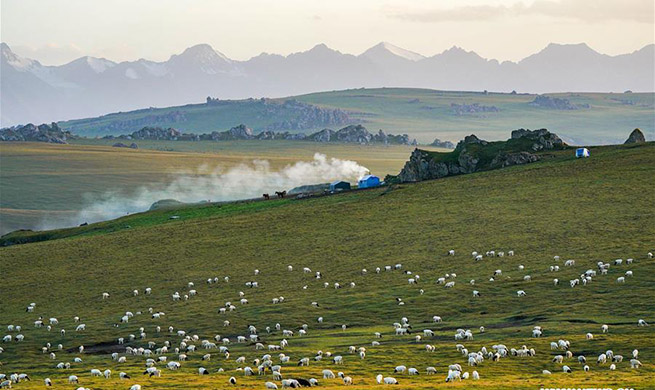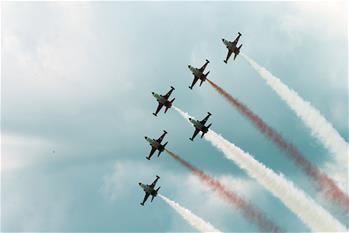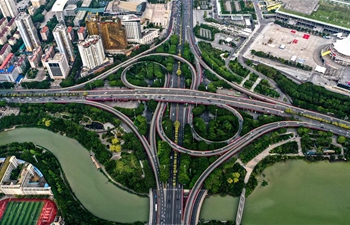KABUL, Sept. 17 (Xinhua) -- Once a tourist attraction, the Salang Pass Tunnel, which links Afghanistan's capital city of Kabul with the northern provinces, is going to lose its beauty as the dirty roads on either side of the tunnel have turned into a source of nuisance for the travelers.
Built in the early 1960s at the heart of the rugged Hindu Kush Mountain, the Salang Tunnel, according to officials in charge of its maintenance, is one of the highest tunnels in the world situated 3,000 meters above sea level.
Formerly a tourist destination for its natural beauty and landscape, the Salang Pass is the only link from Kabul to the eight northern provinces and onward to the central Asian states of Tajikistan, Uzbekistan and Turkmenistan.
Like other national infrastructures, the 2,700-meter long tunnel, along with more than a dozen mini-tunnels and galleries, has been damaged by protracted Afghan wars and civil strife.
"Salang Pass has turned into a source of nuisance for those living on either sides of the road and many shopkeepers have abandoned their business due to increasing air pollution," shopkeeper Mohammad told Xinhua recently.
Lamenting the poor condition of the road amid the beautiful landscape of Salang Pass, Mohammad, 36, complained that scores of shops and hotels operated along the battered road had been abandoned due to increasing amounts of dirt and worsening air pollution.
"Believe me that we people living along the Salang Pass have been inhaling dust instead of oxygen over the past several years. The road has turned into a dust generating machine and is damaging our gardens and destroying our health," Sayed Rahman, 41, a resident of Khinjan valley, told Xinhua regretfully.
Rahman also maintained that the Salang Pass could be changed into a source of income if the government launches greenery projects, asphalts the roads and establishes a cable car system in the surrounding mountains to attract tourists.
Confirming the air pollution, a medical practitioner, Mohammad Ismael, who works for a clinic in Khinjan district told Xinhua that many of his patients coming from around Salang Pass are suffering from asthma and respiratory problems.
At least 10,000 vehicles, including cars, buses and trucks cross the Salang Pass daily, according to officials engaged with the maintenance of the indispensable tunnel.
Some parts of the vital arterial road, which serves as lifeline between Kabul and the northern provinces, have been repaired over the past decade, but the conditions remain severe as low quality materials were used in the repair work and poor maintenance thereafter, according to local officials.
"Using low quality materials in asphalting the roads and poor maintenance are the main reasons for the degradation of the Salang Pass," said Abdul Basir Habibi, Head of the Maintenance Department for Salang Pass, adding the government is assessing the ways and means to restore the pass to a better condition.













